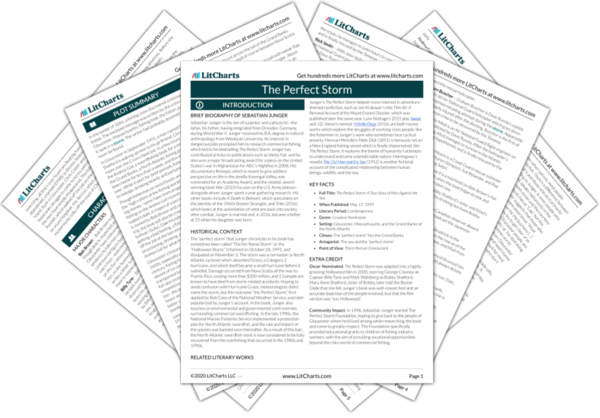The is 72 feet long and was built in Florida in 1978. She has an angled bow and a pilothouse up front, which is on top of an elevated deck called the whaleback. Besides life preservers, survival suits, and life rafts, she also has something called an on board—an
Emergency Position Indicating Radio Beacon. She’s also outfitted with an ice machine, 40 miles of fishing line, and room for tons of baitfish. The
Andrea Gail is a good boat. The only comparable sword boat in Gloucester’s harbor is the , which is captained by a woman named . Linda’s one of the only female captains out there and has a reputation as one of the best of all captains on the East Coast. Both the
Hannah Boden and the
Andrea Gail are owned by .


